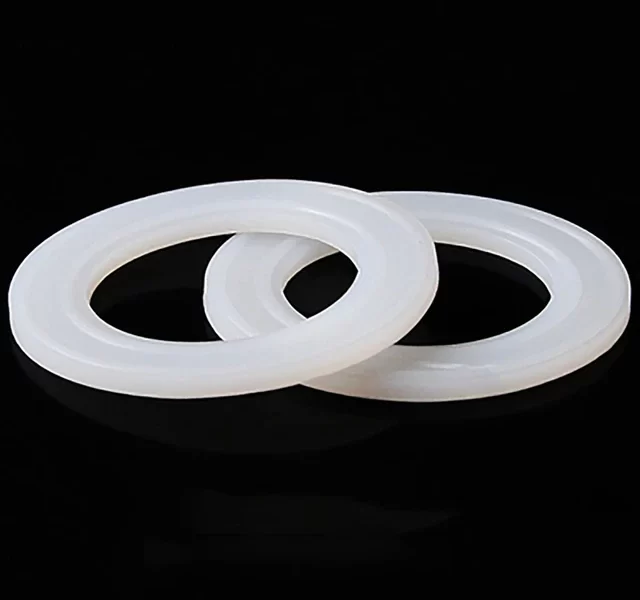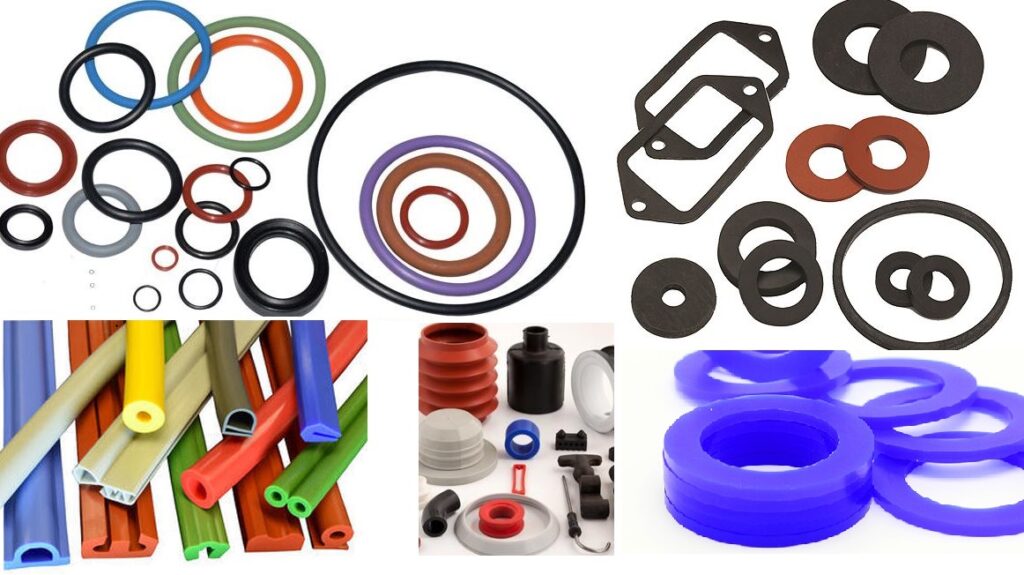
Silicone gaskets global makers are competing for innovation, application fields are expanding rapidly, and environmental protection and high performance are integrated! ”
What is Silicone gasket?

Silicone gasket is a gasket made of silicone material, usually used to seal, insulate, buffer or shock-proof in mechanical and electronic equipment. Silicone is a material with excellent elasticity, high temperature resistance, and chemical resistance, which makes it widely used in many industrial and electronic applications.
Key properties and applications of silicone gaskets include:
Sealing performance: Silicone has excellent sealing performance and can prevent liquid, gas or dust from entering or leaking.
High temperature resistance: Silicone can still maintain elasticity and stability in high temperature environments, so it is often used for sealing and insulation of high temperature equipment.
Chemical corrosion resistance: Silicone has corrosion resistance to many chemicals, allowing it to work stably in chemical equipment or special environments.
Electrical insulation: Silicone is an excellent electrical insulation material, suitable for electronic components, circuit boards and other fields, and can prevent current leakage and mutual interference.
Buffering and shockproof: Silicone has good elasticity and shock-absorbing properties and can be used to slow down mechanical vibration and reduce the impact of shock on equipment.
Silicone gasket shapes, sizes and thicknesses can be customized to meet specific application needs. In the automotive industry, electronic equipment manufacturing, aerospace and other fields, silicone gaskets are widely used to improve product performance and reliability.
Grow-silicone:
Grow-silicone is a top customized silicone products manufacturer , we can provide you with the highest quality products at the lowest price. If you have any needs, please inquire with our professional team.
How to choose silicone gasket?
Application Environment: Determine the environmental conditions in which the silicone gasket will be used, including temperature range, chemical exposure, humidity and other special conditions. Different types of silicone have different tolerances, ensuring that the chosen silicone gasket will perform well in a specific environment.
Hardness: The hardness of silicone gaskets is usually designated as Shore A or Shore D. The choice of hardness depends on the needs of the application, for example, harder silicone is suitable for situations that require better support, while softer silicone is suitable for situations that require better sealing performance and deformation ability.
Size and Shape: Make sure the size and shape of the selected silicone gasket matches the requirements of the application. Silicone gaskets can often be customized to specific design requirements, ensuring a perfect fit with the structure of the device or component.
Durability: Consider the durability and longevity of silicone gaskets, especially when exposed to high temperatures or harsh operating conditions. Choose silicone with superior wear and aging resistance to extend service life.
Electrical insulation properties: If the silicone gasket will be used in electronic or electrical applications, make sure it has good electrical insulation properties to prevent leakage or other electrical problems.
Comply with regulatory standards: According to the regulations of your industry and region, ensure that the selected silicone material meets relevant standards and certification requirements.
silicone gaskets vs rubber gaskets?

Silicone gaskets and rubber gaskets are two common sealing and cushioning materials that have some differences in performance, durability, and application.
material ingredient:
Silicone gasket: Polymerized from siloxane, it is an elastic material that is resistant to high temperatures and chemical corrosion. Silicone is generally more resistant to high temperatures than rubber, maintaining its elasticity over a wide range of temperatures.
Rubber Gaskets: Rubber gaskets are usually made of natural or synthetic rubber. Rubber has good elasticity and wear resistance, but may not perform as well as silicone in high temperatures or extreme environments.
Temperature resistance:
Silicone gasket: It has excellent high temperature resistance and can maintain stability and elasticity in high temperature environments. Silicone is often able to withstand higher temperature ranges, exceeding the limits of rubber.
Rubber gasket: The temperature resistance is worse than that of silicone. Conventional rubber may lose elasticity or even melt at high temperatures.
Chemical stability:
Silicone gasket: It has good chemical stability and can resist the erosion of many chemical substances. Silica gel is not easily affected by acids and alkalis.
Rubber Gaskets: Rubber may be more susceptible to attack by certain chemicals. In some strong acid and alkali environments, silica gel may be more suitable.
Hardness and elasticity:
Silicone gasket: Usually soft, the hardness can be adjusted according to needs. Silicone has excellent elasticity and is suitable for applications that require a certain amount of deformability.
Rubber gasket: Rubber materials of different hardness can be selected according to needs. Rubber also has good elasticity, but may not be as good as silicone in deformation performance.
Electrical insulation:
Silicone Gasket: Has good electrical insulation properties and is suitable for electronic or electrical applications.
Rubber gasket: The electrical insulation performance is relatively poor and may not be suitable for scenarios that have high requirements for electrical insulation performance.
The development of silicone gaskets?
Material performance improvement:
With the continuous development of silicone manufacturing technology, the performance of silicone materials has been improved. The new silicone material has better high temperature resistance, chemical corrosion resistance, electrical insulation performance and aging resistance, allowing silicone gaskets to adapt to a wider range of application scenarios.
Customized Designs:
Manufacturers are now able to offer customized silicone gaskets based on the specific needs of customers. This means silicone gaskets can be customized to specific size, shape, hardness and other requirements to ensure optimal performance in a specific application.
Versatility in Applications:
Silicone gasket applications continue to expand across multiple industries. In addition to traditional sealing and insulation applications, silicone gaskets are now also used in automobiles, electronics, medical equipment, aerospace and other fields, playing a variety of functions such as buffering, shockproof, electrical conductivity, and thermal conductivity.
Environmental awareness:
As concerns about sustainability and environmental protection continue to increase, manufacturers are increasingly focusing on developing environmentally friendly silicone gaskets. This includes efforts to use renewable materials and reduce the environmental impact of production processes.
Automation and production efficiency:
In the production process of silicone gaskets, the introduction of automation technology helps to improve production efficiency, reduce production costs, and ensure the consistency of product quality.

